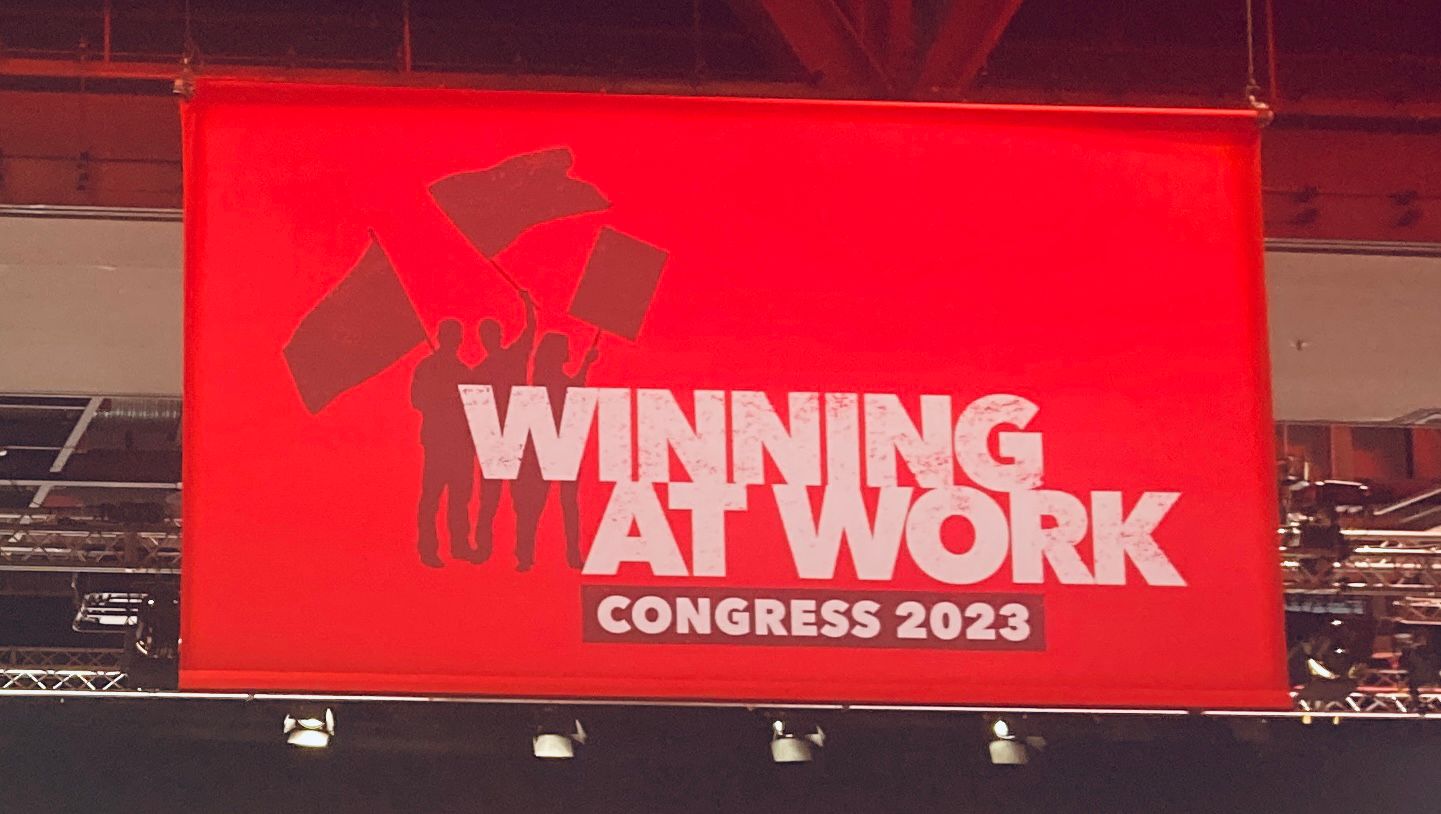What a difference a year makes. Last year’s Congress ended just as Liz Truss resigned as Prime Minister, having inflicted a serious blow on the economy and her own party’s political prospects. The backdrop to Westminster politics then and now has been increased industrial action. There is a noticeably different mood at this TUC Congress to last year’s.
There is more of a buzz about the place; some of this is because the last year of industrial unrest has energised trade union activists (if not trade union membership figures), but most of it is because it genuinely feels as though the Tory party are on course to leave government. For all that many trade unions often rightly criticise the Labour Party, it is the Conservatives that, understandably for a union movement still built on class politics, attract the most disdain. Indeed, one of the Conservative Party’s favourite pastimes is to enact anti-union legislation, and it is currently one of the few things that its sclerotic parliamentary group can still agree on. For instance, recently released protocol for the Minimum Service Levels, as an attack on the fundamental right to strike, have attracted much anger across Congress.
Among the unions seen as more supportive of Labour, there is tangible excitement at the prospect of once again being in proximity to power. Trade unions have never held political power per se, but they have exerted more influence via Labour governments, who have often legislated to make it easier for them to organise. This is why in his speech to Congress, the TUC General Secretary Paul Nowak says that the country needs three things, stronger trade unions, the wealthiest to pay more, and a Labour Government.
The call for a Labour Government was echoed by Christina McAnea, UNISON general secretary, in her first address to Congress on Sunday. However, this should not be mistaken for blind loyalty, as UNISON also made sure to amend Congress’ policy on Free School Meals to pressure Labour to include a commitment to include it in its manifesto. Organised labour’s increasing proximity to power has been reflected by the much greater media presence at this year’s congress than last year, particularly from outlets identified as on the political right who are suddenly much more interested in trade unions, even if they continue to misunderstand them.
Even elements of the trade union movement that are less enamoured with Labour are taking its prospects of power more seriously. For instance, the recent article in the Sunday Times from Sharon Graham, Unite General Secretary, is aimed at influencing Labour in the belief that they will soon be in power to actually do something.
At the National Shop Stewards Network rally, an event that has a strong Socialist Party contingent and is an important part of the labour movement, there was a tentative acceptance that Labour would repeal the 2016 Trade Union Act and the Minimum Service Bill. Consequently, there was now emphasis on how important it is for Labour to repeal more anti-union legislation, such as, quite rightly, that which prohibits secondary action and secondary picketing. This is not borne out of trust for Starmer’s leadership, but out of trust for trade unionists such as Mick Whelan, a speaker at the NSSN rally and Chair of Labour Unions (the group responsible for the New Deal for Working People), to deliver some change through Labour.
This is not to say that change is guaranteed. Labour could still fail to win an election. While a Conservative majority appears extremely unlikely, a hung parliament is not beyond the realms of possibility if Labour fails to win the correct key seats. This could leave Labour having to work with those well-known champions of organised labour, the Liberal Democrats.
But even if Labour wins a majority, harmonious relationships with the wider labour movement are far from guaranteed. The constant squeeze on public services could well provoke more industrial turbulence, particularly if Labour does repeal some of the anti-strike legislation, and the more transactional relationship that now exists between trade unions and the Labour Party could make this particularly attritional. Equally, there is also the chance that trade unions could squander what opportunities they do get from the combination of more favourable legislation and increasingly militant sections of the workforce. However, that does not invalidate what is now a palpable sense of excitement and trepidation as the forward march looks to finally get out of reverse gear.


